IBM Cloud vs Oracle Cloud
August 19, 2023 | Author: Michael Stromann
6
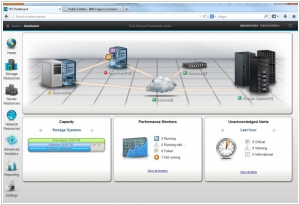
IBM Cloud offers open cloud infrastructure services for IT operations. The IBM Cloud gives you the flexibility to have public, private or hybrid clouds, depending on your business needs. With the IBM Cloud you can unlock more value in your business and in the technology you already have. It’s the cloud that can integrate enterprise-grade services and help speed up the way you innovate.
8
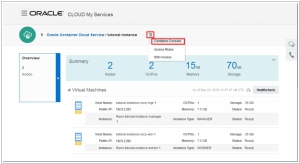
Oracle Public Cloud provides customers and partners with a high-performance, reliable, elastic, and secure infrastructure for their critical business applications and offers customers a complete range of business applications and technology solutions, avoiding the problems of data and business process fragmentation when customers use multiple siloed public clouds.
IBM Cloud and Oracle Cloud are both prominent cloud computing platforms, but they differ in terms of their offerings, strengths, and market presence. IBM Cloud provides a range of cloud services, including infrastructure as a service (IaaS), platform as a service (PaaS), and software as a service (SaaS). It emphasizes enterprise-grade security, compliance, and integration with IBM's other software and services. IBM Cloud has a strong presence in industries such as finance and healthcare and focuses on hybrid cloud deployments. On the other hand, Oracle Cloud offers a comprehensive suite of cloud services, including IaaS, PaaS, and SaaS, with a particular emphasis on database services. Oracle Cloud provides a highly scalable and secure infrastructure and offers integrated solutions for enterprise applications. It is known for its strong integration with Oracle's database and software products. Oracle Cloud targets businesses seeking comprehensive cloud solutions with a focus on database management and enterprise applications.
See also: Top 10 Public Cloud Platforms
See also: Top 10 Public Cloud Platforms
IBM Cloud vs Oracle Cloud in our news:
2021. IBM Cloud Satellite brings IBM public cloud on premises
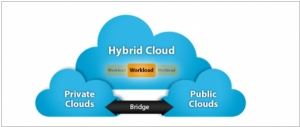
While emphasizing multi-cloud capabilities, IBM has consistently maintained its own public cloud infrastructure, catering to complex enterprise workloads commonly found on mainframes and other systems. The introduction of IBM Cloud Satellite represents an expansion of the IBM Public Cloud, enabling its operation within the customer's on-premises data center or at the network edge. Built on Red Hat OpenShift, IBM Cloud Satellite leverages the Kubernetes management environment, similar to other hybrid cloud solutions offered by IBM. The concept revolves around introducing a Location mechanism, which represents an instance of IBM Public Cloud deployed beyond the confines of IBM's data centers.
2014. IBM SoftLayer attracts startups from Amazon Web Services, Rackspace
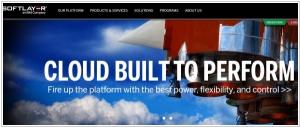
IBM aims to position its SoftLayer platform as a competitive and cost-effective alternative to industry leaders like Amazon Web Services and Rackspace. To demonstrate the momentum of SoftLayer, IBM highlights successful customer adoptions such as MutualMind, a social media interaction monitoring service for businesses, and Vivocha, a customer engagement SaaS product. One major advantage emphasized by IBM is the provision of free private networking across all SoftLayer data centers, which is a unique offering according to Server Density CEO David Mytton. This feature can lead to significant cost savings for growing companies. However, IBM faces the challenge of enticing a substantial number of startups away from AWS and Rackspace, given Amazon's strong foothold with startups over the past seven years. For every IBM SoftLayer success story, AWS likely boasts a multitude. Nonetheless, IBM SoftLayer offers distinct benefits, including hybrid infrastructure capabilities, a comprehensive product portfolio, and a proven track record in managing large-scale workloads.
2013. Oracle: Imagine, that your business is a yacht
Oracle OpenWorld conference could be the most boring event in the IT world, but one thing made it cool: just before the conference, Larry Ellison's yacht (Oracle Team USA) won the America Cup regatta. And Larry immediately used this fact to promote its IT business. It turned out that the Oracle's yacht won mainly thanks to the Oracle Cloud and Big Data. At the beginning of the race it was just more or less competitive yacht. But, unlike its competitors it was overloaded with sensors and cameras that collected 200 GB of data during each race. Then mixed with the information about sea currents, winds, other yachts it was analyzed in the Oracle Cloud. Based on this information every day (before each race) specialists modified/tuned yacht parameters. In result, by the end of the regatta Oracle's yacht has become virtually inaccessible for competitors. In the same way cloud technology could optimize your company. ***
2012. Larry Ellison likes Cloud, Amazon, standards. Not likes SAP, Salesforce, WorkDay
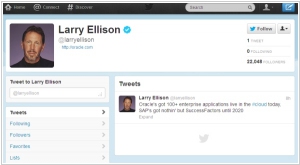
Yesterday, Oracle launched its public cloud service Oracle Cloud and, of course, the CEO, Larry Ellison, rocked at the presentation. The biggest surprise was the fact that Larry is now likes the word Cloud. He says, "I like the word Cloud because it’s a charismatic brand." Previously, he defined the Cloud something like "bull's shit", "water vapour" or "I don't care what you call it." The second surprise was the fact that Ellison can respect a rival and even to recognize that Oracle imitates it. It's about Amazon. Larry says "As part of our platform we have a lot of common with Amazon Web Services. Archive is elastic like Amazon’s cloud is elastic." But the rest of the rivals, of course, were less lucky this day. ***
2011. Wimbledon - Instant Enterprise in IBM's Cloud
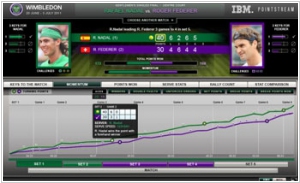
The ongoing Wimbledon tennis tournament serves as a remarkable illustration of the utilization of Cloud technology. Throughout 50 weeks of the year, Wimbledon operates as a private tennis club with a membership of under 500 individuals. However, in June, IBM assists in scaling up its infrastructure to cater to the global audience during the critical two-week tournament, only to scale it back down once the event concludes and normal operations resume. The attendance on the grounds swells to 500 thousand visitors per day, the ticketing system goes live, the online store experiences a surge in orders, and sponsor relations intensify. Yet, these aspects pale in comparison to the match visualization, where every match is meticulously scanned into a virtual 3D model to gather statistics and ensure adherence to the rules. Undoubtedly, this requires a tremendously powerful computing infrastructure. If the club were to purchase and maintain such a system independently, the expenses would be exorbitant, making it financially unfeasible to host the tournament. However, thanks to IBM's cloud solution, the Wimbledon tournament generates substantial revenue for its owners.
2010. Larry Ellison vs Marc Benioff: So what is Cloud Computing?
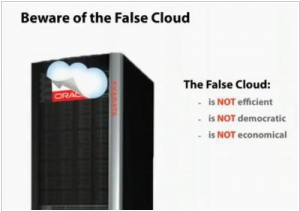
This summer at the Cloudforce conference Salesforce boss Marc Benioff showed the slide titled "Beware of the False Cloud! " with the picture of Oracle Exadata - storage appliance, that is used to build private clouds. Benioff said: "The false Cloud isn’t efficient. It’s not economical. It’s not democratic, it’s not the same for small medium and large companies. It doesn’t have low CO2 emissions. It’s a false cloud and they are just marketing the name because we’re doing so well". And yesterday, at the presentation of the new out-of-the-box private cloud solution Oracle Exalogic Elastic Cloud, Larry Ellison also spent five minutes of humor, devoted to his former employee Marc Benioff. Here's the video: ***
2010. Oracle kills Sun Cloud
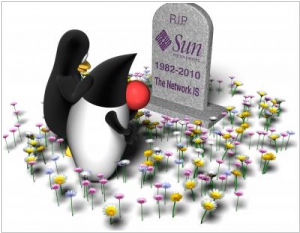
In the period just before Oracle's acquisition, SUN made an announcement regarding its public cloud platform called Sun Cloud. The platform was intended to serve as an open alternative to Amazon Web Services, exciting open-source enthusiasts who eagerly anticipated a new cloud space where Microsoft, Amazon, and Google would face competition, and customers could freely switch between platforms to enhance application reliability and scalability. However, Larry Ellison, the CEO of Oracle, expressed his dismissive stance towards Cloud Computing, bluntly labeling it as "bullshit." Consequently, last week, he officially shut down the Sun Cloud project. According to Larry, selling computing minutes for mere cents is not within Oracle's realm of interest. Instead, Oracle will focus on providing hardware and software solutions to those who engage in such endeavors, as well as catering to companies in need of "private clouds."



